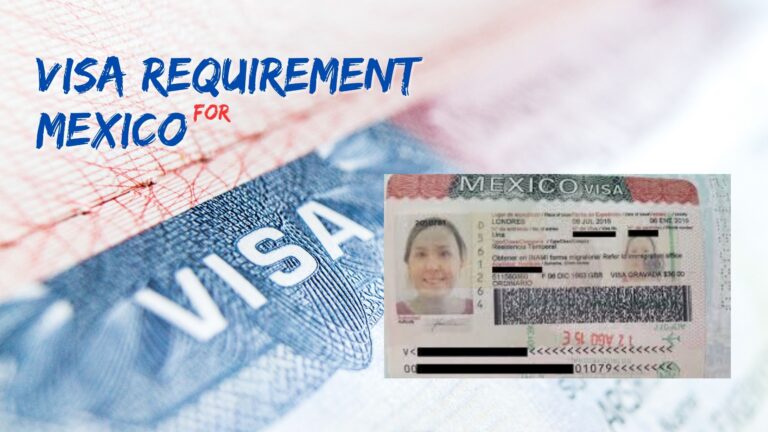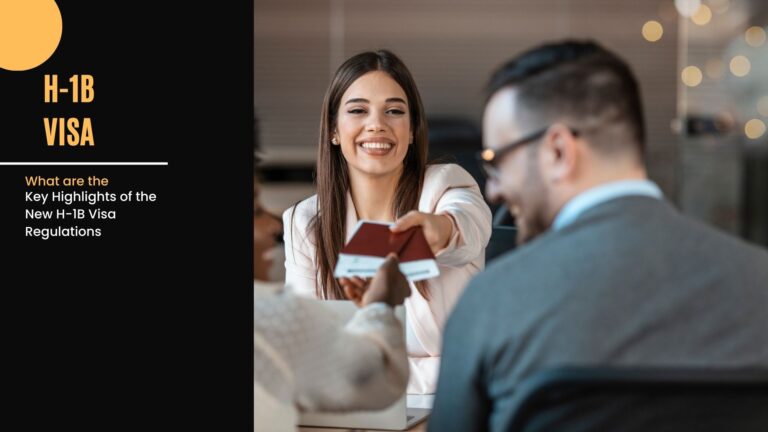TN visa is a non-immigrant classification that enables eligible Canadian and Mexican citizens to work in the United States in specific professional occupations. It was originally created under the North American Free Trade Agreement (NAFTA) and has been preserved under the United States-Mexico-Canada Agreement (USMCA). The purpose of the TN visa is to encourage cross-border mobility of professionals and to facilitate trade and business cooperation among the three member nations.
While the TN visa is often praised for its simplicity and efficiency compared to other employment-based visas, particularly the H-1B, it also has important restrictions that applicants need to understand. The following sections explain its requirements, qualifying job categories, validity period, advantages, and disadvantages in detail.
What is a TN Visa?
The TN visa is a temporary work visa designed exclusively for citizens of Canada and Mexico. It allows individuals in certain professional fields to accept employment offers in the United States without going through lengthy petition-based processes. Unlike other visa categories, the TN visa is tied to specific job roles that are listed under the trade agreements between the three countries.
The visa was established to address labor mobility needs in North America. By creating a framework where qualified professionals can cross borders to meet business and employment demands, the TN visa contributes to the broader goals of free trade agreements.
It is important to note that the TN visa is strictly a non-immigrant visa. This means that applicants must demonstrate that they intend to remain in the United States temporarily and not permanently immigrate, unless they later change to another visa category.
TN Visa Requirements
To qualify for a TN visa, applicants must meet several conditions. These requirements are not only related to citizenship but also to occupation, education, and documentation. The criteria include:
- Citizenship: Only Canadian and Mexican citizens are eligible. Permanent residents of these countries do not qualify.
- Employment Offer: The applicant must have a formal, pre-arranged job offer from a U.S. employer. Self-employment is not permitted under the TN visa category.
- Eligible Occupation: The job offer must fall within one of the professional categories listed in the USMCA/NAFTA agreements. This includes fields such as healthcare, science, engineering, education, and finance.
- Educational and Licensing Credentials: Most positions require at least a bachelor’s degree in the relevant field. Certain roles may also demand specific licenses or professional certifications. For example, a lawyer or pharmacist must demonstrate the necessary licensing to practice.
- Supporting Documents: Applicants are required to provide evidence of their qualifications, such as degrees, transcripts, and licenses. A detailed job offer letter from the employer is also necessary, outlining the role, responsibilities, and duration of employment.
Process for obtaining the TN visa differs slightly for Canadians and Mexicans. Canadians are not required to obtain a visa stamp from a U.S. consulate; instead, they can apply directly at a U.S. port of entry by presenting documentation to a Customs and Border Protection (CBP) officer. Mexican citizens, however, must obtain a TN visa through a U.S. embassy or consulate before traveling to the United States.
How Long is a TN Visa Valid For?
The TN visa is initially granted for a period of up to three years. This makes it comparable to the H-1B visa, which also begins with a three-year validity period. The key advantage of the TN visa is that it can be renewed indefinitely in three-year increments, provided that the applicant continues to meet all eligibility requirements and maintains qualifying employment.
The renewal process is relatively straightforward, though each extension requires proof that the employment relationship remains valid. Applicants must also continue to demonstrate non-immigrant intent, which means convincing U.S. authorities that their stay is temporary. This requirement can create challenges for individuals who hope to transition to permanent residency.
While the visa can theoretically be renewed without limit, each renewal is scrutinized independently. U.S. authorities can deny an extension if they believe the applicant intends to remain permanently in the United States.
What Jobs Fall Under a TN Visa?
The TN visa applies only to specific professions listed in the USMCA/NAFTA agreement. These occupations were selected to align with labor needs and professional standards recognized across Canada, Mexico, and the United States. Some of the major categories include:
- Healthcare Professions: Registered nurses, dentists, pharmacists, veterinarians, and dietitians.
- Science and Engineering: Chemists, biologists, engineers, geologists, and physicists.
- Business and Finance: Accountants, economists, management consultants, and hotel managers.
- Education and Social Sciences: College or university teachers, librarians, psychologists, and social workers.
- Legal and Specialized Professions: Lawyers, architects, and computer systems analysts.
This list is comprehensive but exclusive. If a profession is not listed, it cannot qualify under the TN visa category. This makes the visa less flexible compared to the H-1B, which allows for a wide range of job types.
What are the Disadvantages of a TN Visa?
Although the TN visa offers many benefits, such as quick processing and indefinite renewals, it also has limitations that may impact applicants and their families.
- No Clear Path to Permanent Residency: TN status does not permit dual intent. This means that holders must maintain the appearance of temporary residency. Attempting to apply for a green card while in TN status can result in denial of extensions or reentry to the United States.
- Dependent Restrictions: Family members can accompany TN visa holders under TD status, but they are not authorized to work in the United States. This limits the ability of dependents to contribute financially.
- Limited Job Categories: Only pre-approved occupations qualify. Professionals in roles not covered by the USMCA/NAFTA list cannot use the TN visa, even if they otherwise meet qualifications.
- Employment Dependency: TN visa holders are tied to a specific employer and job. If employment ends, so does the visa status, leaving little flexibility for job changes.
- Uncertainty in Extensions: Although the visa can be renewed indefinitely, each renewal requires proof of non-immigrant intent. This can create insecurity for individuals who work in the United States long term but do not plan to permanently immigrate.
When compared to the H-1B visa, the TN visa is more accessible but less versatile in the long run. The choice between the two depends on professional goals, family considerations, and long-term plans regarding residency in the United States.
Is TN Visa Better than H-1B?
When comparing the TN visa with the H-1B visa, both similarities and differences emerge, making each more suitable for different circumstances.
The TN visa is considered more accessible because it does not involve an annual lottery system, unlike the H-1B visa, which is limited by a numerical cap and subject to high demand. This means Canadian and Mexican professionals who meet the TN criteria can often obtain work authorization more quickly and predictably. The application costs for TN status are also lower, and the processing time is generally shorter, with some Canadians receiving approval the same day they apply at a border crossing.
TN visa comes with restrictions. It is available only for specific occupations listed under USMCA, which excludes many emerging roles, particularly in the technology sector. Additionally, the TN visa does not allow for dual intent. This means that holders cannot simultaneously maintain temporary status while pursuing permanent residency. Attempting to transition directly to a green card from TN status can complicate immigration matters.
By contrast, the H-1B visa, while harder to obtain due to the lottery and cap, is not limited to specific occupations. It also allows dual intent, meaning holders can lawfully apply for permanent residency while maintaining H-1B status. Family members of H-1B holders may also be eligible for work authorization, something that is not available under TN dependent visas.
In summary, the TN visa is better for individuals who qualify under its specific job list and who plan to work temporarily in the U.S. The H-1B, while harder to obtain, is better suited for long-term immigration planning and provides broader job flexibility.
FAQs
1. What is a TN visa and who can apply?
A TN visa is a U.S. non-immigrant work visa created under NAFTA/USMCA that allows Canadian and Mexican citizens in specific professional occupations to work temporarily in the United States.
2. What are the basic requirements for a TN visa?
Applicants must be Canadian or Mexican citizens, have a valid job offer from a U.S. employer, work in an eligible occupation listed under USMCA, and hold the necessary education or licenses.
3. How long is a TN visa valid?
A TN visa is generally valid for up to three years and can be renewed indefinitely in three-year increments, provided the applicant continues to meet the eligibility requirements.
4. What jobs qualify for a TN visa?
TN visa jobs include professions in healthcare (nurses, pharmacists), engineering, science, teaching, law, and finance, among others. Only occupations listed in USMCA/NAFTA qualify.
5. Is the TN visa better than the H-1B visa?
The TN visa is faster and easier to obtain, with no lottery system. However, unlike the H-1B, it does not allow dual intent, has limited job categories, and offers fewer benefits for dependents.
6. Can a TN visa lead to a green card?
The TN visa does not directly provide a path to permanent residency since it requires non-immigrant intent. Transitioning to a green card is possible but more complex compared to the H-1B.
7. Can TN visa holders change employers?
Yes, TN visa holders may change employers, but each new employment requires a new TN application and approval, either through USCIS or at a U.S. port of entry.
8. Can dependents of TN visa holders work in the U.S.?
Dependents of TN visa holders enter on a TD visa. They may live and study in the U.S. but are not permitted to work, unlike certain H-1B dependents who may qualify for work authorization.
9. What are the disadvantages of a TN visa?
The disadvantages include no dual intent, limited qualifying jobs, inability of dependents to work, employer dependency, and difficulties transitioning to permanent residency.
10. How does the TN visa renewal process work?
TN visa holders must reapply every three years, showing proof of continued employment in a qualifying role and maintaining non-immigrant intent. Renewals can be done indefinitely if eligibility is maintained.






